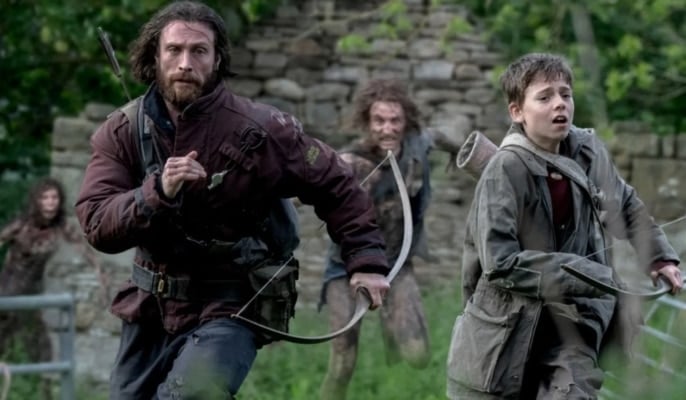
Sony Pictures // Courtesy
Aaron Taylor-Johnson and Alfie Williams star in "28 Years Later," one of the best films of the summer.
Since the end of the spring 2025 semester, theater screens across the country have been graced by — or, in some cases, subjected to — a host of high-profile new releases that vary wildly in both financial success and actual quality. Here are some of the best:
“Mission: Impossible — The Final Reckoning,” which debuted in late May, kicked off the summer movie season. Running just shy of three hours, the final installment in Tom Cruise’s quest to perform the most insane stunts possible is a big time commitment, but it’s worth it for fans of the series and action films in general. It doesn’t approach the level of series highlights like “Ghost Protocol” or “Rogue Nation,” but the big setpieces are incredible and the surrounding plot is enjoyably convoluted. Esai Morales is a standout as the Saturday-morning-cartoon villain Gabriel.
Another May release, Andrew DeYoung’s “Friendship,” starring Tim Robinson and Paul Rudd, is one of the funniest movies I’ve seen in quite some time. Robinson, known for his surreal sketch-comedy show “I Think You Should Leave,” is a magnetic presence with a bizarre and, at times, baffling sense of humor. “Friendship” definitely feels like a movie made by a sketch comedian, for better and worse, but nearly all the jokes land. A deranged confrontation between Robinson and very loud comedian Conner O’Malley is particularly hilarious.
Two of the summer’s best films were released in June: Wes Anderson’s “The Phoenician Scheme” and Danny Boyle’s “28 Years Later.” While I don’t adore “The Phoenician Scheme” as much as some others seem to, it’s a worthy addition to Anderson’s repertoire of exceptional and exceptionally droll dramedies. It lacks the emotional power and self-reflexivity of “Asteroid City,” but is imbued with a political streak that Anderson hasn’t evinced so explicitly since “The Grand Budapest Hotel.” The ensemble cast is, as ever, amazing. Michael Cera and Riz Ahmed, in particular, are perfectly suited to their first foray into Anderson’s fastidious universe.
With “28 Years Later,” Boyle and screenwriter Alex Garland return to the post-apocalyptic Britain they created in the landmark zombie movie “28 Days Later.” While the latter film was a hyper-contemporary account of the immediate aftermath of a disaster, “28 Years Later” is closer in tone and style to a fantasy adventure. Its world is wonderfully realized and immediately compelling, and its commentary on modern-day British and global politics is astute and doesn’t feel polemical. I loved this movie — I saw it twice in one weekend, fascinated by its distinctive visual style, unusual tonal shifts and absolutely amazing score by Young Fathers.
Ari Aster’s “Eddington” seems intentionally designed to needle as many people as possible, which is always a risky move. A film consisting entirely of provocation is liable to lapse into nihilism or smug complacency, but Aster largely avoids these pitfalls. He understands the paramount importance of performance and symbolism in contemporary politics, where the actual facts of an event are far less important than the anxieties and fears that said event can inflame or assuage. I laughed out loud several times, and I can confidently say it uses Katy Perry’s “Firework” better than any other movie I’ve seen.
Longtime readers of this publication may recall my recent disdain for the superhero genre, so it could surprise you to read that I was a big fan of James Gunn’s “Superman.” Despite my antipathy for recent superhero films, especially those in the Marvel Cinematic Universe, I do love reading a great comic book, and that’s what Gunn’s film felt like. It’s a very busy movie, overflowing with characters and narrative digressions, but the ensemble is fantastic and the movie’s bleeding-heart optimism resonates. David Corenswet is a revelation, Rachel Brosnahan is perfectly cast as Lois Lane and Nicholas Hoult might still be better than either of them as the gloriously evil Lex Luthor.
Zach Cregger’s “Weapons” rounded out my movie-watching this summer. Surprisingly, much like “Friendship,” it’s clear that this is a movie made by a sketch comedian. Comedy and horror are very similar, building tension through elaborate setups that are then resolved by a punchline or scare — in this case, both. Cregger’s ending is maybe a little too neat, rendering some of his creepiest images inert via overexplanation, but it’s undeniably cathartic and the journey there is both incredibly scary and surprisingly hilarious.